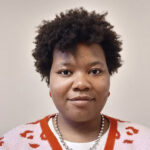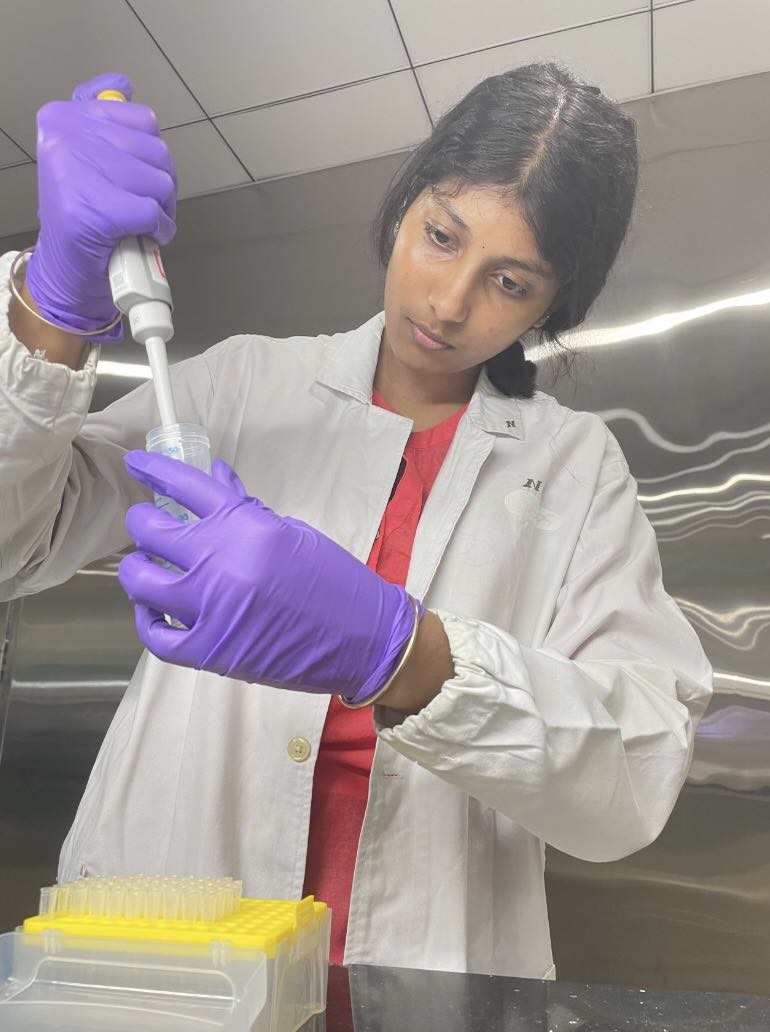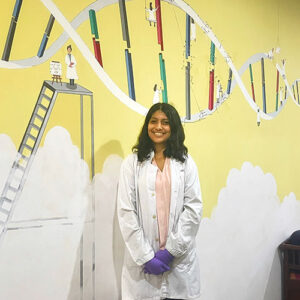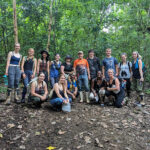
Neuroscience major conducts lab research on LOX genes during APEX Fellowship

Bhumika Ramesh ’26, a neuroscience major at The College of Wooster, discovered how the fields of genetics and neuroscience work together in the study of ocular genetic disease this summer during her APEX Fellowship. While interning at Narayana Nethralaya’s GROW Research Lab in India, Ramesh was able to fine-tune essential lab skills while supporting research. Though supported by a host of staff at the GROW Research Lab, Ramesh also received guidance from her fellowship mentor Naoko Skala, assistant professor of theater and dance and South Asian studies. This opportunity to participate in laboratory research gave Ramesh the experience she needed in order to be confident about her aspirations to pursue research in the future. It also gave her the unique opportunity to be a part of the cohort which launched India’s first gene therapy trials.
“Working in the laboratory environment gave me exposure to what I want to do in the future and what I could expect. It brought together my interests in the research field to directly collaborate with doctors and bring genetic solutions to affected patients.”
—Bhumika Ramesh ’26

Why was this APEX Fellowship position a good fit for you?
“The position was a good fit for me as I got to observe translational research work up close. Working in the laboratory environment gave me exposure to what I want to do in the future and what I can expect. It brought together my interests in the research field to directly collaborate with doctors and bring genetic solutions to affected patients.”
What were some of the things you did each day?
“My work mainly consisted of studying the LOX gene, which is implicated in a disease called keratoconus. We did basic analysis such as Western blotting, but also undertook H&E staining, purification of plasmids, creation of AAV’s (adeno-associated viruses) and so on. I had the chance to observe anatomical dissections to understand if the genetically modified gene was contributing to tissue healing. We also attended lab meetings and seminars twice a week to talk about ongoing research projects and receive constructive criticism from the senior scientists.”
Who was your fellowship mentor and how did they help you to succeed in this position?
“My fellowship mentor assigned from the College was Professor Naoko Skala. She has been extremely understanding throughout the entire internship and her questions have enabled me to deeply reflect on the process. I had many mentors in the lab, and they all helped me succeed in different areas. Subhradeep Sarkar was the main mentor who I shadowed. He helped me understand how all the techniques worked and let me take the reins on a few complicated procedures. I learned a lot about protein extraction and visualization from Dr. Shomereeta Roy. Dr. Priya Panikker helped me understand plasmid purification and isolation. My senior mentor, Dr. Anuprita Ghosh, brought the whole thing together by letting me focus on how the internship also builds emotional experiences.”
What are some skills you’ve learned that you see yourself carrying forward in your career?
“I’ve learned skills such as creating gels for electrophoresis, creating buffers, plasmid digestion, plasmid DNA purification, using the microtome for slicing preserved tissues, staining of the sliced tissues, qPCR (quantitative polymerase chain reaction), transfecting cells— the list goes on. These are all basic lab skills, and I am glad I learned them.”
How has the internship helped you to see what’s next for you?
“The internship has definitely confirmed that research is the way for me. As a neuroscience student, I didn’t think that genetics could be a field that intertwined with what I was doing, but my experience at the lab has shown me that combining the two of them can lead to discoveries on various frontiers, especially for neurodegenerative diseases.”
Posted in Experiential Learning, Showcase Stories 2023 on August 16, 2023.
Related Posts
Related Areas of Study
Neuroscience
Psychology, chemistry, philosophy, computer science, and other disciplines combine in the study of the nervous system
Major

